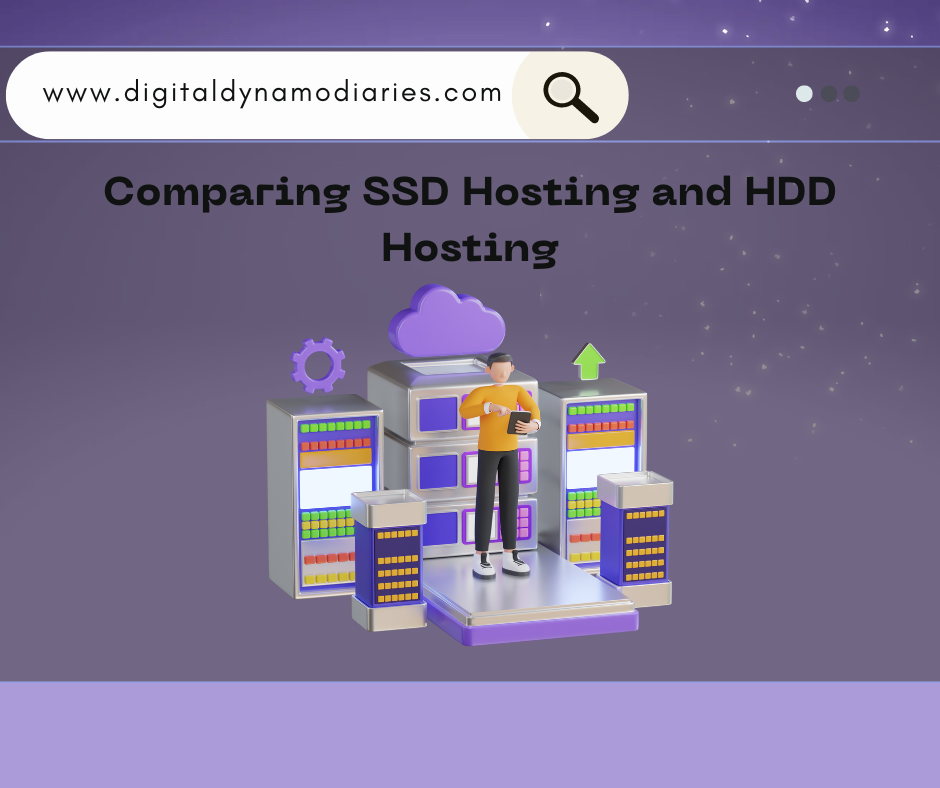Comparing SSD Hosting and HDD Hosting
Choosing the right storage type for your web hosting can significantly impact your website’s performance and reliability. In this article, we will explore the differences between SSD (Solid State Drive) and HDD (Hard Disk Drive) hosting to help you make an informed decision.
What is SSD Hosting?
Solid State Drives (SSDs) use flash memory to store data, providing faster access times and improved performance compared to traditional HDDs. SSD hosting leverages these benefits to deliver a superior hosting experience.
Advantages of SSD Hosting
SSD hosting offers several key benefits that can enhance your website’s performance and reliability. Here are the main advantages:
1. Speed: SSDs deliver significantly faster read and write speeds, resulting in quicker website load times. This can improve user experience and boost search engine rankings.
2. Reliability: The absence of moving parts in SSDs reduces the risk of mechanical failure, leading to greater reliability and a longer lifespan for your data storage.
3. Energy Efficiency: SSDs consume less power than HDDs, which can lower energy costs and contribute to a smaller environmental footprint.
4. Performance: With lower latency and faster data access, SSDs handle higher traffic volumes and deliver content more efficiently, enhancing your website’s performance.
Disadvantages of SSD Hosting
Despite their advantages, SSDs have some drawbacks that you should consider. Here are the primary disadvantages:
1. Cost: SSDs are generally more expensive than HDDs, which can increase your hosting costs. However, the performance benefits often justify the higher investment.
2. Storage Capacity: SSDs typically offer less storage capacity at a similar price point compared to HDDs, which can be a limitation if you need to store large amounts of data.
What is HDD Hosting?
Hard Disk Drives (HDDs) have been the standard storage medium for decades, using spinning disks to read and write data. HDD hosting remains a popular choice due to its affordability and large storage capacities.
Advantages of HDD Hosting
HDD hosting offers several benefits that make it a viable option for various types of websites. Here are the key advantages:
1. Cost-Effective: HDDs are cheaper than SSDs, making HDD hosting a more budget-friendly option for individuals and businesses.
2. Larger Storage Capacity: HDDs provide more storage space at a lower cost compared to SSDs. This is beneficial for websites that require significant storage, such as those hosting large media files.
3. Availability: HDDs are widely available and have been in use for a long time, making them a reliable and proven storage option.
Disadvantages of HDD Hosting
However, HDDs also have some limitations that might affect their suitability for certain applications. Here are the primary disadvantages:
1. Slower Speed: HDDs have slower read and write speeds due to their mechanical nature. This can result in longer loading times for your website.
2. Higher Failure Rate: The moving parts in HDDs make them more susceptible to mechanical failures, which can lead to data loss and downtime.
3. Higher Power Consumption: HDDs consume more power than SSDs, leading to higher energy costs and a larger environmental impact.
Key Differences Between SSD Hosting and HDD Hosting
Understanding the key differences between SSD and HDD hosting will help you decide which is better suited for your website. Here are the main distinctions:
1. Performance: SSDs provide superior performance with faster data retrieval, leading to quicker website load times and a better user experience. HDDs, while slower, can still be adequate for less resource-intensive websites.
2. Reliability: SSDs are more reliable due to their lack of moving parts, whereas HDDs are prone to mechanical failures over time.
3. Cost: HDDs are more cost-effective and offer larger storage capacities at lower prices, making them suitable for budget-conscious users or those needing extensive storage.
4. Consumption: SSDs are more energy-efficient, reducing operating costs and environmental impact compared to HDDs.
Choosing the Right Hosting for Your Needs
Selecting between SSD and HDD hosting depends on your website’s specific requirements and priorities. Here’s a guide to help you determine which option is best for you:
Ideal Use Cases for SSD Hosting
SSD hosting is ideal for websites that require high performance, reliability, and speed. Consider SSD hosting for the following use cases:
1. E-commerce Websites: Fast load times are critical for online stores to enhance user experience and improve sales conversions.
2. High-Traffic Websites: Websites with high traffic volumes benefit from the superior performance and reliability of SSDs.
3. Content-Heavy Websites: Websites hosting a large amount of content, such as blogs and news sites, can significantly improve user experience with faster access times.
Ideal Use Cases for HDD Hosting
HDD hosting is suitable for websites that need large storage capacities at a lower cost. Consider HDD hosting for the following use cases:
1. Personal Blogs: Small blogs with moderate traffic and storage needs can operate efficiently on HDD hosting.
2. Archival Storage: Websites that primarily store large amounts of data, such as backups or archives, can benefit from the larger storage capacities of HDDs.
3. Budget-Conscious Projects: Projects with tight budgets that need to maximize storage capacity without high performance demands can opt for HDD hosting.
Conclusion
Choosing between SSD and HDD hosting involves weighing the performance benefits of SSDs against the cost savings and larger storage capacities of HDDs. SSD hosting offers superior speed, reliability, and energy efficiency, making it ideal for high-performance websites. Conversely, HDD hosting provides a more cost-effective solution with ample storage space for budget-conscious users. Evaluate your website’s specific needs and budget to make the best decision for your hosting requirements.



